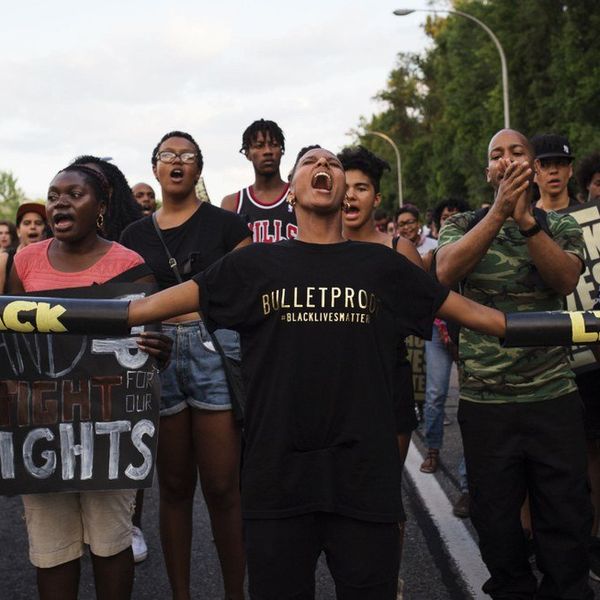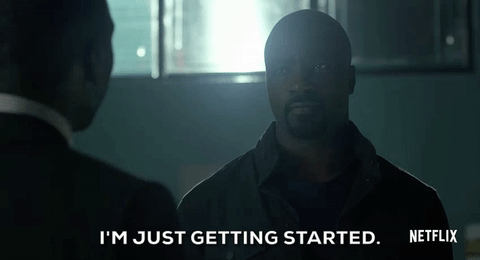I was so excited that I got to sit down and binge-watch Marvel’s “Luke Cage” these past few days. If you read my article earlier in the summer about Marvel’s “Jessica Jones,” you’ll know I’m into media reflecting social justice and equity. And I was really pleased to see that what “Jessica Jones” did for women, mental illness awareness, and queer folk, “Luke Cage” did for race. There was hardly a white person in the story – and it made sense, because it was a story written by and for black people, set in a predominantly black city.
I feel I should throw in here that I’m of mixed race and have a ton of white privilege, so I have no room to speak on how well it actually reflects black culture, and black culture in Harlem. However this guy does.
But I’m not here to talk about that today. I’m here to talk about the ways "Luke Cage" references #BlackLivesMatter, and why it’s so important for media to talk about social equity. Oh, and there are tons of spoilers here, so if you haven’t seen it through to the end, save my article and read it after you finish!
1. Police outrage against the black community when a police officer was killed.
This very much reflects the political climate right now. When a police officer was killed by Stryker, who they thought was Luke Cage, they went into black neighborhoods and started beating and interrogating young black men left and right, to the point that a police officer actually beat up a teenage boy bad enough that he ended up in the hospital -- all because they couldn’t find Luke Cage and get all the answers they needed. It’s important to show these kinds of scenes because they’re what’s happening in the world right now. Unfortunately, most police officers that get aggressive these days don’t even need to have a reason, and the fact that the offending officer was suspended without pay was more extreme of a punishment than most officers receive for killing young, unarmed black men. White people in the audience may not know this though, so giving them characters and a community to be sympathetic with may help them see the importance of the movement.
2. Mariah Dillard's community-organizing skills.
Mariah Dillard is a psychopath. She’s absolutely terrifying, and near the end, it became evident that she would do anything to advance herself forward, even if it meant killing people. However, one thing she did well was organize the community against the police department when they put that young man in the hospital. She showed the power that a community can have when they get together to get stuff done, and #BlackLivesMatter started as just that – a grassroots movement.
3. The hoodies full of bullet holes.
Luke Cage has a bad habit of getting caught in the crossfire in gun fights. Luckily, his skin is impervious to bullets. However, it makes him easy to identify when his clothes are all full of bullet holes. He ended up trading hoodies with someone because his was full of bullet holes, and pretty soon the community was with him, and many black men were wearing hoodies to throw the police off his trail. Hmm, a hoodie as a protest. Sound familiar to anyone?
4. "Bulletproof Love."
This one is pretty self-explanatory. “You know, there’s somethin’ powerful about seeing a black man that’s bulletproof and unafraid.”
There were more instances where the movement was mentioned in the show, I’m certain, but those are the four times that stand out to me. Did I miss something important? Let me know in the comments!





















